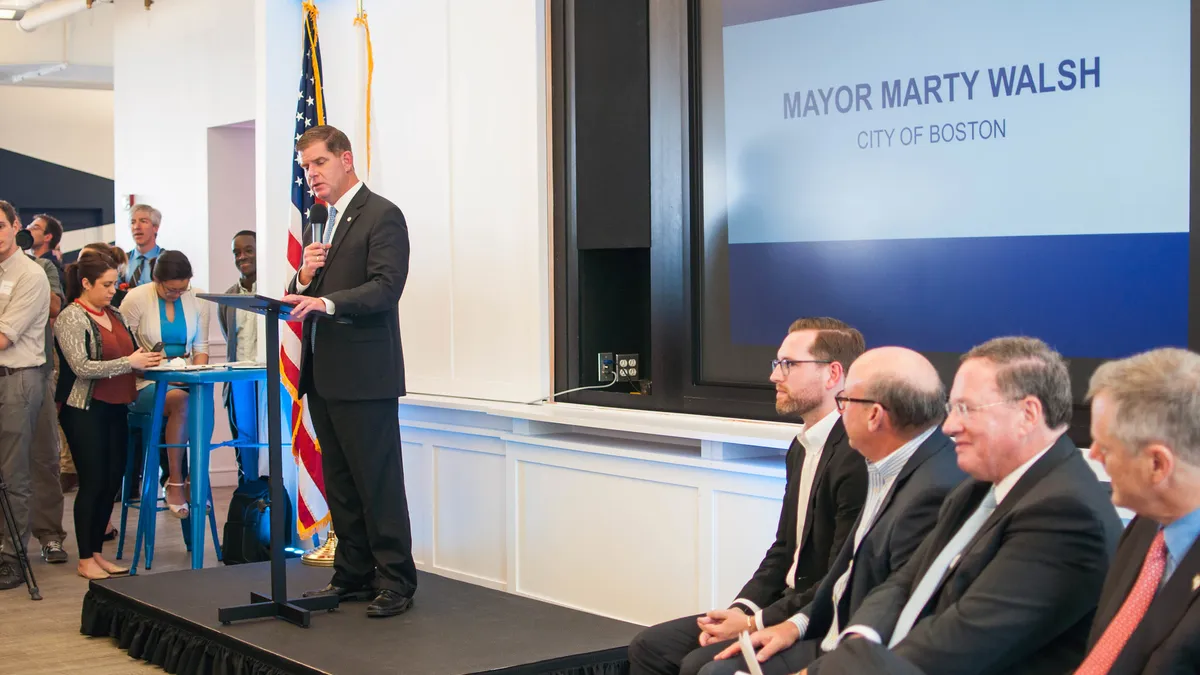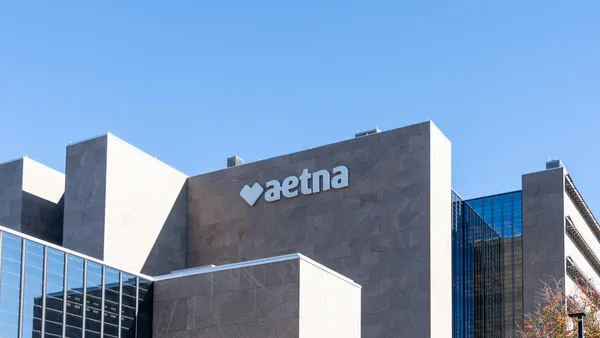Dive Brief:
- The U.S. Senate confirmed Marty Walsh as Secretary of Labor in a 68-29 vote Monday.
- Walsh, the now-former Mayor of Boston, represents the last of President Joe Biden's picks to lead federal executive departments to be confirmed. Biden billed Walsh, a former union president, as the first former union member to fill the spot in "nearly half a century" following the nomination.
- As Labor Secretary, Walsh said during his confirmation hearing that he would be tasked with, among other things, formulating the Biden administration's new workplace safety standards under the Occupational Health and Safety Administration. He also voiced commitments to worker training and equity at work; "One of my top priorities … is to work with each and every one of you to make sure that every American worker gets the opportunity to be successful," Walsh said at the Feb. 4 hearing.
Dive Insight:
Walsh will join an administration that is moving fast in implementing its workforce agenda. In just one month following his inauguration, Biden has issued a number of executive orders relating to HR subjects such as diversity training and anti-discrimination regulations. OSHA has already updated its workplace guidance on COVID-19 safety which, in part, reinforces the use of face coverings and social distancing practices.
On the regulatory front, Biden's actions have been wide-ranging. DOL rescinded Trump-era regs including impending final rules that would have changed the agency's interpretations of joint employer and independent contractor standards under the Fair Labor Standards Act. The agency also nixed a Trump administration overhaul of the nation's apprenticeship approval process over concerns that it created a "redundant" program.
But Walsh adds the background of union leader into the mix, something Biden touted during the nomination announcement. During Walsh's confirmation hearing, Republican senators questioned his support of the Protecting the Right to Organize Act, a Democratic-backed bill that would create several protections for labor unions, redefine joint employment under the National Labor Relations Act and potentially impact state "right to work" laws. Responding to those questions, Walsh called the PRO Act "one step closer to helping people organize freely."
"Mayor Walsh also made clear he will work with Congress to help ensure every worker has a fair, livable wage, a safe workplace, paid family, sick, and medical leave, access to quality, affordable child care, a secure retirement, and the right to join a union and collectively organize," Sen. Patty Murray, D-Wash., said in remarks before the Senate last week.
The former mayor's tenure coincided with a "historic construction boom" in the city of Boston, though Walsh's administration also dealt with a number of controversies, according to a report by The Boston Globe. One such example, a federal Title VI complaint filed earlier this year by local Black and Latinx business organizations, alleged that the city's contracting system "unlawfully excludes Black- and Latinx owned businesses from participation in the City's public contracting."














